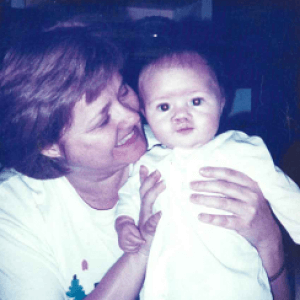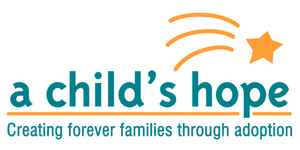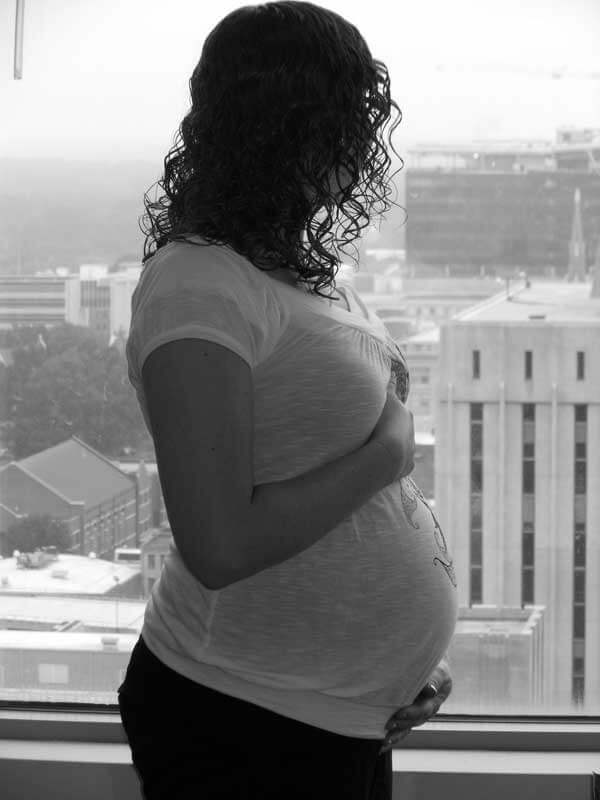This article was originally published on our sister website, Herring & Mills Family Law Firm in Raleigh
 People often ask me why I – once an aggressive divorce attorney – founded an adoption agency. I was Board certified in Family law and could fight it out with the best of them. The simple answer is that A Child’s Hope was born because I got mad, got scared and fell in love with a little boy born in New Mexico. My personal experience of the difficulties in bringing a family together through adoption shook my value system and gave me the courage to act as an advocate for other children and parents who want to adopt.
People often ask me why I – once an aggressive divorce attorney – founded an adoption agency. I was Board certified in Family law and could fight it out with the best of them. The simple answer is that A Child’s Hope was born because I got mad, got scared and fell in love with a little boy born in New Mexico. My personal experience of the difficulties in bringing a family together through adoption shook my value system and gave me the courage to act as an advocate for other children and parents who want to adopt.
I Got Mad
. . . about how expensive, difficult and stressful the adoption process was when I travelled to New Mexico 18 years ago in order to adopt my son. Now, I am no saint, and anyone who has borne the brunt of my temper knows the aftermath is not always pleasant. But in this case, thankfully, my anger was driven by compassion, and I was able to use that energy constructively. I believe that can be seen in A Child’s Hope’s ability to match 316 children to families over the last 16 years in North Carolina. With few exceptions, our families are matched with North Carolina birth mothers and the adoptions are in state. And when the birth father is identified, as much as possible the birth father issues are sorted out ahead of the baby’s birth.
I Got Scared
I remember feeling very scared once we started caring for my son-to-be in a hotel in New Mexico. I was scared that the situation wasn’t going to work out – there were complex paternity issues, and he had health issues because he was born with a bilateral cleft lip and palate. The doctors wanted us to leave him there in Albuquerque for treatment and he was losing weight really fast. We had to go to the pediatrician daily to weigh him and we had to wait two weeks in a hotel to get approval to bring him back to North Carolina. I was scared I would lose a son I never had, and I was scared for his sake, for all that he was going through and for all that he would have to go through.
I Fell In Love
 . . . with this sweet little baby boy with brownish-blonde hair and slate colored eyes swaddled and lying on his side in a Catholic hospital in Albuquerque.
. . . with this sweet little baby boy with brownish-blonde hair and slate colored eyes swaddled and lying on his side in a Catholic hospital in Albuquerque.
He was struggling to breathe and the nurses wouldn’t let me pick him up because he had been crying since he was born, the night before. When I tell my son this story he laughs and says, “I guess I was crying, someone must have showed me a mirror.” Another reason I love my son? His sense of humor. You see, my son knows that when he was born there was a gaping hole where his nose should be and a large bulbous growth sticking out. I won’t tell you that his dad and I weren’t scared for him but when we saw him that night, we saw a little boy who had found his home with us and we fell in love with him.
Home Sweet Home
Once we got back home to North Carolina I again became angry, because our family had to deal with more complications within the adoption process. I was shocked to learn when we added it up that the legal, agency and medical costs as well as our costs for travelling and staying in New Mexico totaled $35,000 in 1998 (or about $51,000 today). One of my goals has been to help families adopting to keep the costs lo and stress down by adopting within the state. Families adopting through A Child’s Hope now spend an average of $35,000 18 years later from when I adopted my son — huge savings for any family.
Worthwhile, If Not Easy
Adoption for our family was complicated, stressful and very expensive. I still wake up several times a year from the nightmares and my jaw aching from the clenching of teeth over the stress. It took us three years to pay off the adoption costs and quite some time to sort out the birth father and American Indian issues.
So why did an aggressive divorce attorney create an adoption agency? Because adopting my son changed my life. As a family we sometimes get angry at each other, sometimes don’t talk and sometimes don’t see each other, but the love is always there. And I want other sons and daughters and their parents to have the opportunity that we did, and I want to make it easier for them than it was for us.

 The second trimester of pregnancy often feels like the best. You may no longer get morning sickness, and you may now enjoy a hearty appetite along with a resurgence of energy. You also are starting to see visible changes in your body as the baby grows, but you don’t yet have some of the late stage discomforts.
The second trimester of pregnancy often feels like the best. You may no longer get morning sickness, and you may now enjoy a hearty appetite along with a resurgence of energy. You also are starting to see visible changes in your body as the baby grows, but you don’t yet have some of the late stage discomforts.

